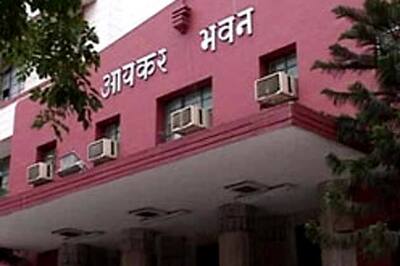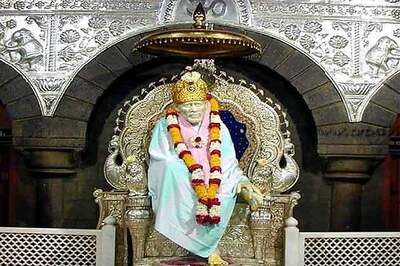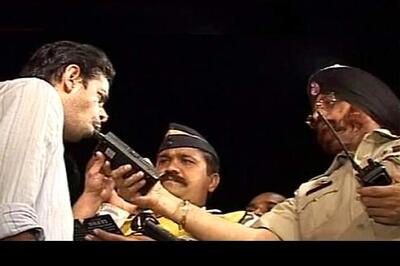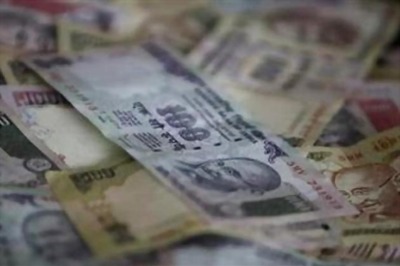
views
That's how long the congress' present generation took to bring back Etawah on party's radar. Etawah, a small town on the banks of Yamuna as the river meanders towards the chambal ravines in southwestern Uttar Pradesh.
In UP's altered political landscape, Etawah now is a district associated more with congress' bete noire Mulayam Singh Yadav. It's his home turf. His backyard.
So twenty-seven years after the senior Mrs G, Indira Gandhi campaigned here, the daughter-in-law-Sonia, had ventured into Mulayam's den --- holding a rally in the heart of the town.
That's also nearly one hundred and twenty seven years after the first congressman walked into Etawah.
A Scottish civil servant by the name of A O Hume became the collector of the district in the pre-independence Central Province in 1880.
Allan Octavian Hume. Founder of the congress party in 1885. Three years after he retired from his majesty's government.
It's hard to find any landmark associated with Hume in today's Etawah. No statue, no plaque, none whatsoever.
Except one. Rather four. Indelible marks. So much there, yet missing. So obvious, yet concealed in city's labyrinthine lanes.
As a district collector, Hume is said to have read the documentations of the 1857 War of Independence. Moved by detailed reports of the British retaliation post the mutiny, he did try to chanalize and improve upon the local administration. For that, four new buildings were constructed; the four now house the city municipal corporation, police kotwali, a college and another adjoining dilapidated government office.
All were built in H-shape. H for Hume.
The idea of helping Indians form a political party seems to have crystallized here. Hume did write some papers on these lines just before he was to retire from the services. Some of these works along with those by Jim Corbett were translated into Hindi by an eminent satyagrahi and a minister in the central province government- Sri Ram Sharma. Later in 1984 he wrote an open letter to the graduates of Calcutta University, advocating formation of a political party or a safety valve for the Indians. A valve to express their anger; to negotiate with the rulers. A valve that also became the instrument of the freedom movement
An eager ornithologist, Hume during his stay in India surveyed and documented birds of the Indian sub-continent. His collection-which went to the British Museum in 1874 had 20,000 specimens.
But today, in Etawah few know that the seeds of the congress party were perhaps sown in their own town some one hundred twenty five years ago.
The congress worker that I spoke to in Home-gunj (what was once Hume-gunj) in Etawah did not have the slightest inkling about the relevance of this place in congress' history.
Congress's search for its roots in Uttar Pradesh still continues. first published:April 11, 2007, 19:50 ISTlast updated:April 11, 2007, 19:50 IST
window._taboola = window._taboola || [];_taboola.push({mode: 'thumbnails-mid-article',container: 'taboola-mid-article-thumbnails',placement: 'Mid Article Thumbnails',target_type: 'mix'});
let eventFire = false;
window.addEventListener('scroll', () => {
if (window.taboolaInt && !eventFire) {
setTimeout(() => {
ga('send', 'event', 'Mid Article Thumbnails', 'PV');
ga('set', 'dimension22', "Taboola Yes");
}, 4000);
eventFire = true;
}
});
window._taboola = window._taboola || [];_taboola.push({mode: 'thumbnails-a', container: 'taboola-below-article-thumbnails', placement: 'Below Article Thumbnails', target_type: 'mix' });Latest News
Twenty-seven years is a long time, especially in politics.
That's how long the congress' present generation took to bring back Etawah on party's radar. Etawah, a small town on the banks of Yamuna as the river meanders towards the chambal ravines in southwestern Uttar Pradesh.
In UP's altered political landscape, Etawah now is a district associated more with congress' bete noire Mulayam Singh Yadav. It's his home turf. His backyard.
So twenty-seven years after the senior Mrs G, Indira Gandhi campaigned here, the daughter-in-law-Sonia, had ventured into Mulayam's den --- holding a rally in the heart of the town.
That's also nearly one hundred and twenty seven years after the first congressman walked into Etawah.
A Scottish civil servant by the name of A O Hume became the collector of the district in the pre-independence Central Province in 1880.
Allan Octavian Hume. Founder of the congress party in 1885. Three years after he retired from his majesty's government.
It's hard to find any landmark associated with Hume in today's Etawah. No statue, no plaque, none whatsoever.
Except one. Rather four. Indelible marks. So much there, yet missing. So obvious, yet concealed in city's labyrinthine lanes.
As a district collector, Hume is said to have read the documentations of the 1857 War of Independence. Moved by detailed reports of the British retaliation post the mutiny, he did try to chanalize and improve upon the local administration. For that, four new buildings were constructed; the four now house the city municipal corporation, police kotwali, a college and another adjoining dilapidated government office.
All were built in H-shape. H for Hume.
The idea of helping Indians form a political party seems to have crystallized here. Hume did write some papers on these lines just before he was to retire from the services. Some of these works along with those by Jim Corbett were translated into Hindi by an eminent satyagrahi and a minister in the central province government- Sri Ram Sharma. Later in 1984 he wrote an open letter to the graduates of Calcutta University, advocating formation of a political party or a safety valve for the Indians. A valve to express their anger; to negotiate with the rulers. A valve that also became the instrument of the freedom movement
An eager ornithologist, Hume during his stay in India surveyed and documented birds of the Indian sub-continent. His collection-which went to the British Museum in 1874 had 20,000 specimens.
But today, in Etawah few know that the seeds of the congress party were perhaps sown in their own town some one hundred twenty five years ago.
The congress worker that I spoke to in Home-gunj (what was once Hume-gunj) in Etawah did not have the slightest inkling about the relevance of this place in congress' history.
Congress's search for its roots in Uttar Pradesh still continues.




















Comments
0 comment